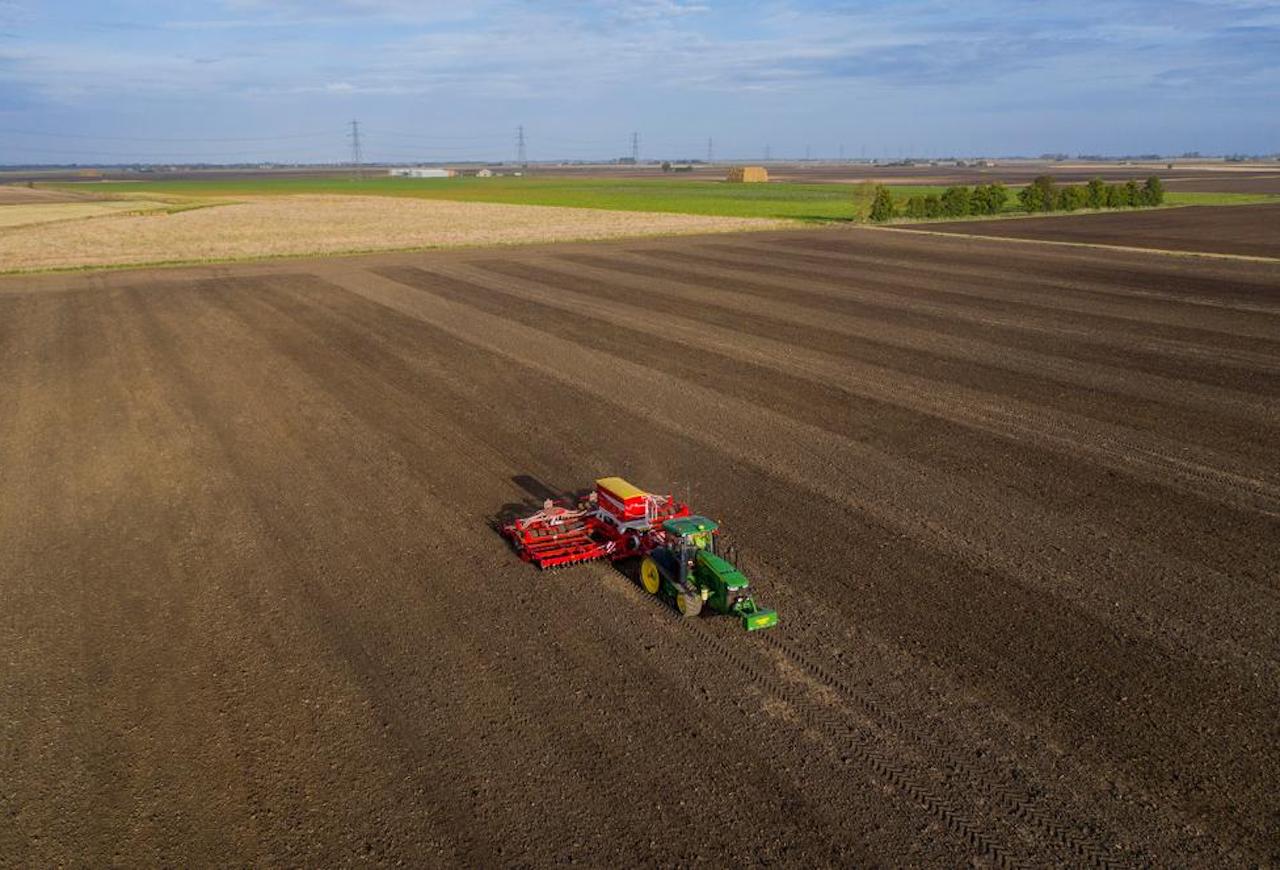Royal London Asset Management is taking a controlling interest in South Yorkshire Pension Authority’s 20,000-acre UK farmland portfolio with a view to extending the use of sustainable farming methods.

South Yorkshire Pension Authority (SYPA) has sold a majority stake in its 21,000-acre holding of UK arable farmland to Royal London Asset Management (RLAM) through the creation of a £260m (€304m) joint venture, which aims to introduce environmentally friendly farming techniques.
The deal, one of the largest ever agricultural land transactions in the UK, will see farmland held by SYPA in the English counties of Cambridgeshire, Lincolnshire, Norfolk and Wiltshire transferred into a new jointly held vehicle. RLAM will hold 54% of the fund, with SYPA holding the remaining 46%. Much of the land has been managed by Waldersey Farms, a company set up by SYPA, which will continue in that role as part of the joint venture.
The investment injection provided by RLAM as part of the venture provides extra financial resources to reinvigorate infrastructure and implement a business plan for the land. The plan foresees the integration of measures to address climate change and biodiversity loss, the introduction of regenerative farming and water quality improvement schemes and participation in carbon and biodiversity offset schemes among other sustainable farming measures.
By doing so, the partners say they are converting a property investment to a natural capital investment.
SYPA, which administers a local government pension fund in northern England, has been building up its agricultural investments since 1976, to the point where they accounted for 2.5% of its portfolio by 2019, at which point it was advised to reduce its exposure to the sector for strategic reasons. By taking a minority stake in the new vehicle, SYPA’s exposure to the farming sector has been cut to around 1.5%.
“As stewards of the business we had built up over many years, we wanted to find a way of reducing our exposure, while maintaining the integrity of the business, and still realising the very significant potential for this portfolio to grow,” George Graham, head of paid service and main policy adviser to SYPA, told Impact Investor.
Long-term view
RLAM – part of the UK’s largest mutually owned pension and investment company Royal London – made sense to SYPA as an investor due to the two organisations’ shared commitment to long-term investment and sustainability, Graham said.
For RLAM, the joint venture marks a first investment in agriculture and natural capital.

Mark Evans, RLAM’s head of property and commercial development, said the investment presented a way to diversify its real estate exposure into an area which was negatively correlated to traditional property investments, while also offering prospects of healthy long-term returns and opening up opportunities to tackle challenges like food security and environmental challenges that would benefit future generations.
The size of an investment in assets over which the institution had direct control was also a factor.
“We need to make investments at scale, and this is why the opportunity to partner with South Yorkshire is so appealing. By investing a meaningful amount of capital, we are also able to devote the time needed to manage the investment,” Evans said.
RLAM also sees the investment as helping to futureproof its wider portfolio and contribute to net-zero goals, in the context of increasingly far-reaching UK measures relating to carbon impacts and the impact of the real estate sector on biodiversity.
Evans said he hoped the joint venture would provide a springboard to bring innovative sustainable farming techniques being pioneered in other countries to the UK and that it would allow RLAM to become an influential voice in the UK debate on issues such as food, carbon and biodiversity provenance, and nutritional quality.
There is also an ambition for the joint venture to attract more investors in the future, potentially including other UK pension authorities, who may be able to bring their agricultural investments with them, scaling up the business and its environmental benefits further.
“Ultimately, RLAM and South Yorkshire are investing in this to make a financial return for our members and our customers, but we are also both long-term investors in the UK and we want to do the right thing in the UK. So it’s about how we marry those two things together and this venture sits quite nicely alongside our wider ESG characteristics and beliefs,” Evans said.






